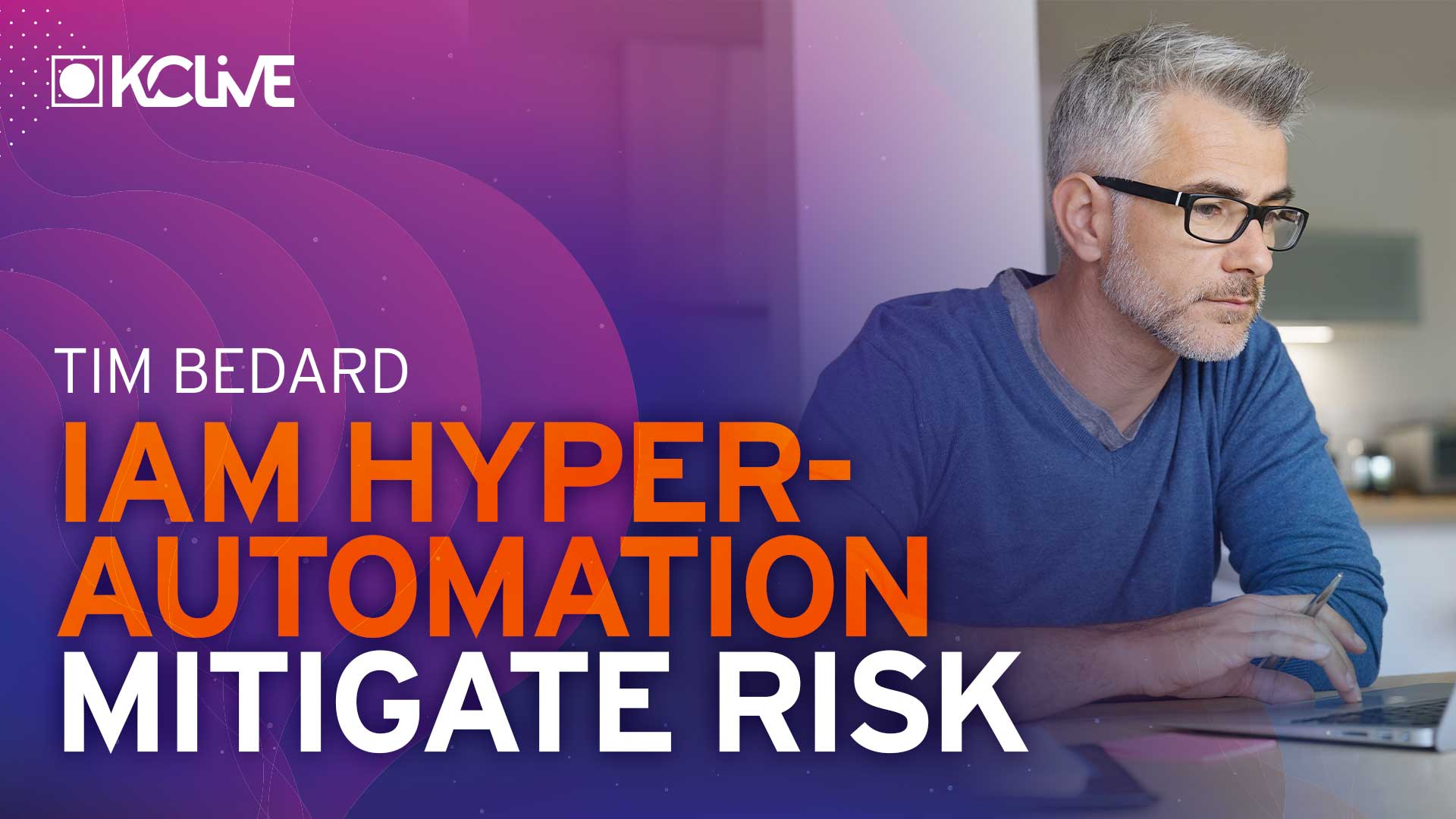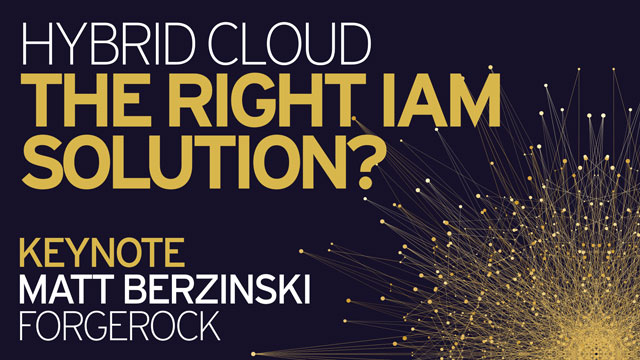Insights
Research
Advisory
Events
Videos
KC Open Select
Company
KuppingerCole's Advisory stands out due to our regular communication with vendors and key clients, providing us with in-depth insight into the issues and knowledge required to address real-world challenges.

Optimize your decision-making process with the most comprehensive and up-to-date market data available.
Compare solution offerings and follow predefined best practices or adapt them to the individual requirements of your company.
Configure your individual requirements to discover the ideal solution for your business.

Meet our team of analysts and advisors who are highly skilled and experienced professionals dedicated to helping you make informed decisions and achieve your goals.

Meet our business team committed to helping you achieve success. We understand that running a business can be challenging, but with the right team in your corner, anything is possible.
The ForgeRock Identity Platform™ transforms the way millions of customers and citizens interact with businesses and governments online, providing better security, building relationships, and enabling new cloud, mobile, and IoT offerings from any device or connected thing. ForgeRock® serves hundreds of brands like Morningstar, Vodafone, GEICO, TomTom, and Pearson with customer identity, as well as governments like Norway, Canada, and Belgium, among many others. Headquartered in San Francisco, California, ForgeRock has offices in London, Bristol, Grenoble, Oslo, Düsseldorf, Paris, Sydney, Singapore, and Vancouver, Washington. For more information visit http://www.forgerock.com and follow us on Twitter @ForgeRock

Join identity and access management experts from KuppingerCole Analysts and ForgeRock for a discussion on passwordless authentication solutions, the reasons organizations are slow to implement them, and how to go about making the switch successfully by understanding the technologies and process changes involved.
Alejandro Leal, Research Analyst at KuppingerCole will explain the main features, capabilities, and benefits of passwordless authentication. He will also look at how to assess passwordless authentication solutions, and how to identify the ones that are best suited to your organization.
Jeff Carpenter, Director of Product Marketing at ForgeRock will discuss the various use cases for passwordless authentication and the need for different approaches. He will also look at some common challenges and potential pitfalls, as well as the best practices to follow, as well as provide an overview of how the ForgeRock Identity Platform enables passwordless deployment.

Effective Identity Governance and Administration (IGA) is becoming increasingly important as digital transformation, cloud computing, and remote working increase the scope and complexity of Identity and Access Management (IAM) to new levels. But legacy role-based access control (RBAC) solutions alone are unable to meet the changing and dynamic IGA requirements of modern enterprises.


Many organizations are undergoing new modes of operation, which is enabling them to develop a "digital instinct" for their customer's needs. A correctly designed consumer identity management platform allows those organizations to excel, in an agile, secure, and business-enabling way. What does success look like in the CIAM world and how do identity fabrics enable it?

Unternehmen müssen in der modernen IT-Welt eine Vielzahl von Angestelltenidentitäten, Benutzerrollen, Zugangspunkten und Endgeräten verwalten. Diese Verwaltung von digitalen Identitäten und den entsprechenden Zugriffsrechten ist für die meisten Firmen nicht nur kompliziert, sondern auch zeitaufwändig. Wenn Unbefugte fälschlicherweise Zugriff zu sensiblen Unternehmens- und Kundendaten erhalten, kann dies zu Compliance-Problemen, Bußgeldern und Reputationsverlusten führen.

In 2020 organizations have been forced to accelerate their digital transformation plans to meet the needs of a more digital engaged end user. From remote workforces to shifts to online commerce, nearly every industry has had to adopt to this new reality. This has resulted in rapid cloud service adoption and a need for integration of existing on-premises investments with them. But today's Hybrid Cloud reality needs a comprehensive security policy that encompasses newly acquired cloud technologies all the way down to legacy on premises applications which provide business critical capabilities. In this presentation, we will discuss the characteristics needed in an Identity and Access Management platform that will allow organizations to quickly get address new security issues while allowing for a smooth digital transformation at their own pace.

Application and infrastructure architectures are continuously changing in order to mirror the demands and challenges of organizational needs. A common problem with legacy systems is the inability to understand and adapt to the new business models in an ever-changing world.

In an increasingly hostile world, where you don't know who to trust, companies still need to be able to deliver trusted, personalized experiences for users, without making them jump through hoops to prove who they are.

The Internet of Things is disrupting all industries and use cases; from customer IoT, to Industrial IoT. Companies are forced to become more innovative with their products whilst their services are being, or will be, digitized. Top drivers of this digitization are eroding margins and changing customer behaviour, whereas new market disruptors face security challenges. The question now becomes: where do companies decide to focus their money and efforts, in order to capitalize on this disruption?
Either on business optimization, by doing things better and more efficiently, or focusing on a business transformation, to move from CAPEX to OPEX.

Microservices architectures, where applications comprise multiple loosely coupled components, which can be developed using different languages frameworks, and platforms, have become one of the most popular alternatives to traditional monolithic enterprise applications. Since these modules are deployed independently and only communicate over standard protocols or APIs, they lend themselves to continuous delivery and continuous integration processes, reducing costs and risks of developing new features. However, with an increasing number of microservices, the complexity of adding security and identity capabilities to each of them can quickly get out of hand. By externalizing and centralizing identity and access management, organizations can ensure a secure and consistent identity and access management across on-premises and cloud infrastructures, as well as promote DevOps best practices.